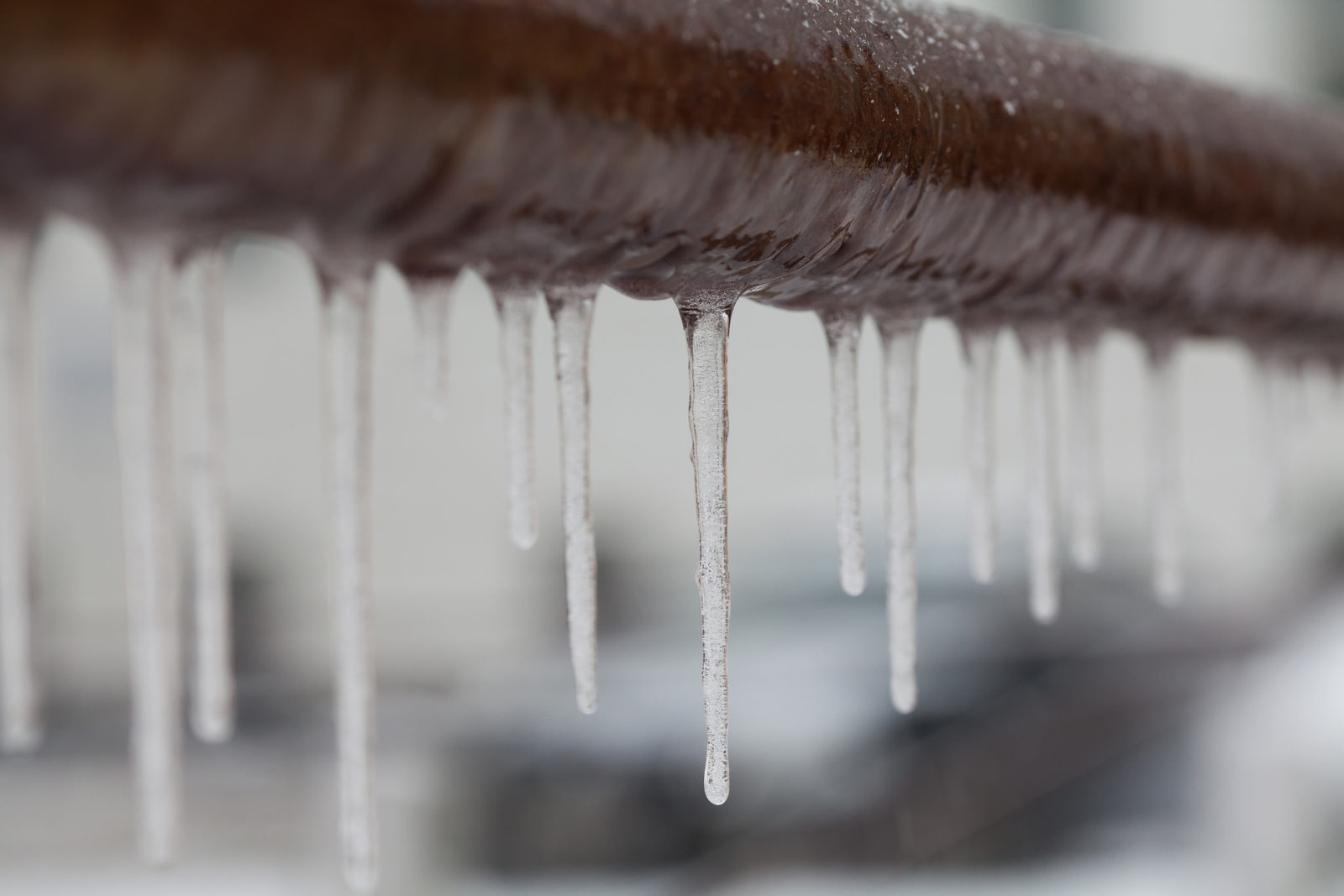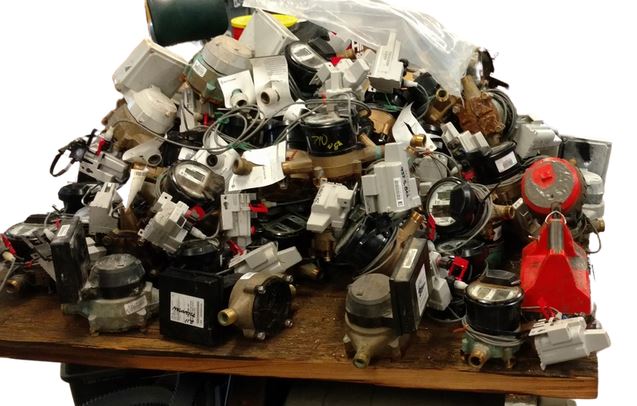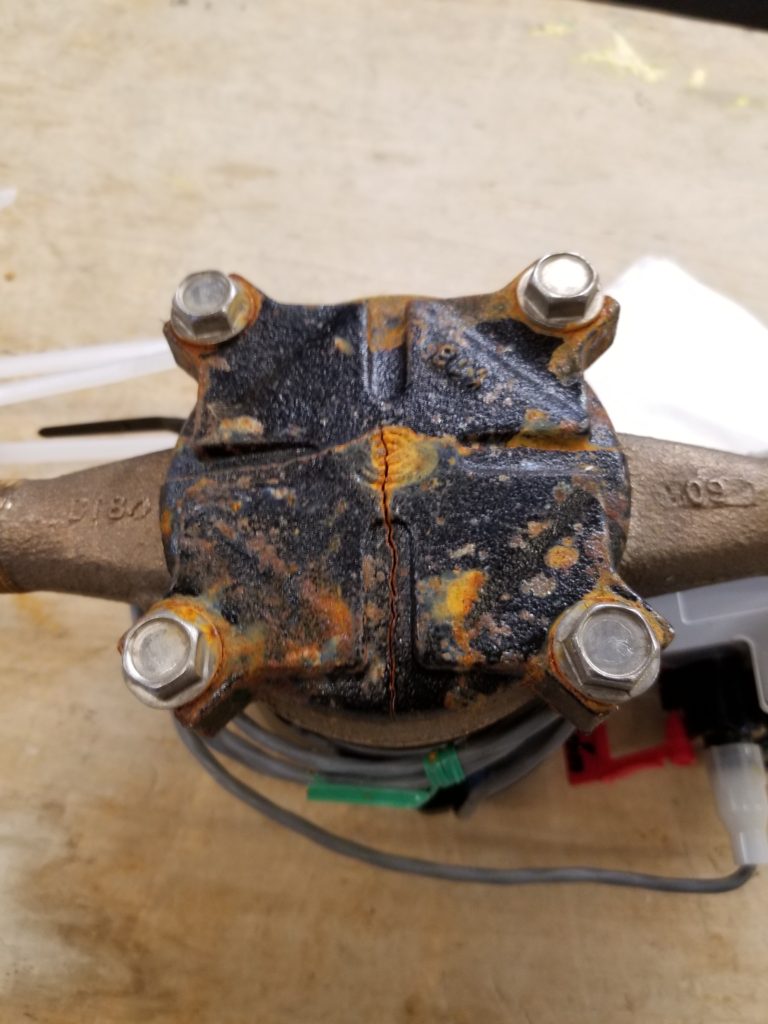Winter Weather Tips to Protect Your Pipes and Water Meter!
 February 5, 2021
February 5, 2021Winter is here, and temperatures are regularly dipping below freezing. Have you checked on your water meter lately?
It is important to check your house to ensure your water meter and any water lines that are in unheated or exposed areas, such as a basement or crawl space, are insulated or wrapped in heat tape. (If you are unsure how to do this, contact a licensed plumber.)
Avoid a Costly Bill

Remember that while Lehigh County Authority owns the meter, the water customer is responsible for protecting it. If the water meter is broken because of freezing or other damage, LCA will charge the customer for the meter’s replacement.
That’s a bill of about $325, not including the site fee. Each of the meters in the picture at left was replaced because it froze.

The site visit fee during business hours — 7:00 a.m. – 4:45 p.m., Monday through Friday (except holidays) — is $50. After hours and during holidays the site visit fee is $150. As LCA is a nonprofit, the site visit fees help us to recover costs, especially after hours and during holidays when we have technicians being paid overtime to provide service to customers.
These prices also do not include any additional parts, such as backflow prevention or meter reading radio devices that may need to be replaced because of related damage.
Once a water meter has frozen, the evidence is very clear — the meters are equipped with a frost plate (at right) that will be broken.
Where to Check
Most water meters and pipes are in basements, crawl spaces, and other unheated areas, where cold winter temperatures could cause them to freeze. If your meter has frozen in the past, and you have done nothing to protect it since, it will likely freeze again.
Insulating your meter is a simple way to protect it. The easiest way to insulate a water meter is with a specially made cover or blanket that can be purchased to fit the make and size of the meter. If you’re not sure what kind to purchase, check with a plumbing supplier.
Additional Tips
Here are a few other ways to keep you water meter — and your house — warm this winter:
- Cold air can seep into the house through cracks in windows, walls and doors, and through spaces/gaps around them. Gaps can be filled with spray foam insulation or caulking. Repair or replace broken windows and doors.
- Install storm windows on any windows in the house that aren’t double-paned.
- Eliminate drafts from crawl spaces by sealing them off.
- Turn off the water to outside faucets (there should be shutoff valves inside the house).
- Never shut off the heat when you are away. Lower the thermostat instead — shutting off the heat can lead to frozen pipes.
- Improve the circulation of heated air near pipes. For example, open kitchen cabinet doors beneath the kitchen sink.
- If you have no way to protect pipes from freezing during cold snaps, leave all water taps slightly open so they drip continuously. It will waste some water, but in the long run, it will be less costly — and less wasteful — than having a pipe freeze and burst.
If a pipe becomes frozen, never use a torch to thaw it. Instead, heat the room or use a hair dryer. Keep in mind that frozen pipes can crack, so when they thaw out, they can cause a flood.
If you have any questions about how to properly care for your water meter and plumbing, or about your responsibility for them, don’t hesitate to contact us.